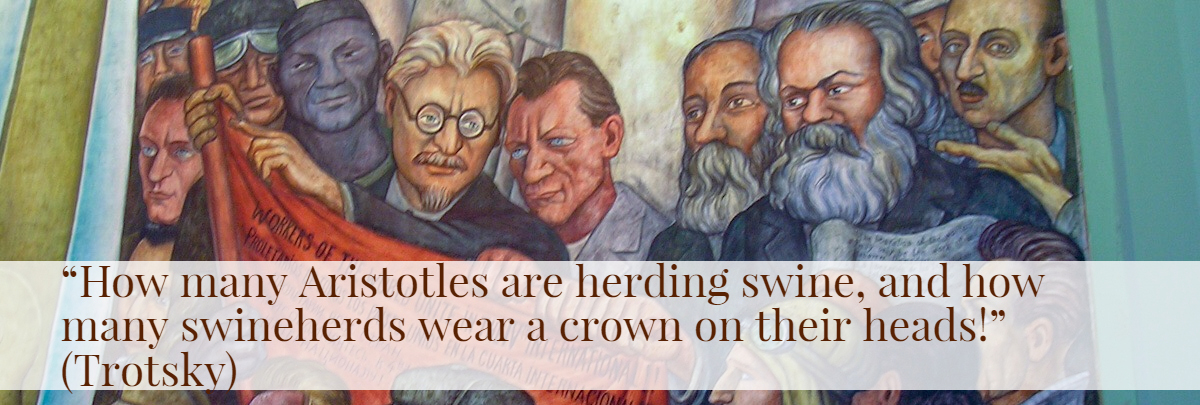Art

Art is important to people. It has always been so from the earliest human societies, when it was indissolubly linked to magic — that is, to the first primitive attempts of men and women to understand and gain control over the world in which they live. However, in class society art is so designed as to exclude the masses, and relegate them to an impoverished existence, not only in a material but in a spiritual sense.
In Roman times we had "bread and circuses"; now we have soap opera and pop music. Commercial art which sets out from the lowest common denominator is at once a useful soporific drug intended to keep the masses in a state of stupified contentment, while at the same time making a few capitalists exceedingly rich. By thus reducing the artistic level of society to a bare minimum, and increasingly alienating the "serious arts" from social reality, capitalism guarantees a continuous degeneration and pauperisation of art in general.
Confined to this rarified atmosphere, where it is obliged to feed off itself in the same way that factory-fed cows and chickens are fed the dead carcasses of other animals, and develop a deadly brain disease as a result, art becomes ever more sterile, empty and meaningless, so that even the artists themselves begin to sense the decay and become ever more restless and discontented. Their discontent, however, can lead nowhere insofar as it is not linked to the struggle for an alternative form of society in which art can find its way back to humanity. The solution to art's problems is not to be found in art, but only in society.
— From Marxism and art
